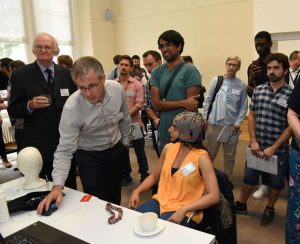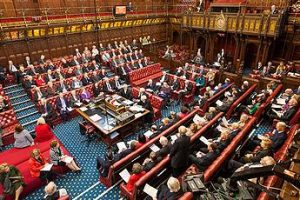 The Royal Academy of Engineering has welcomed the government’s industrial strategy white paper, Building a Britain fit for the future, because it takes inclusive approach to address the need for digital skills and focuses on the technologies for artificial intelligence and big data.
The Royal Academy of Engineering has welcomed the government’s industrial strategy white paper, Building a Britain fit for the future, because it takes inclusive approach to address the need for digital skills and focuses on the technologies for artificial intelligence and big data.
Professor Dame Ann Dowling, president of the Royal Academy of Engineering, writes:
“Now is the time to ramp up investment, particularly in digital skills, to ready the workforce for the next technological age, and the engineering community stands ready to support this process.”
“Engineering is a vital part of this country’s economy, contributing over 20% of gross value added and accounting for half our exports so engineering will be absolutely critical to delivering the outcomes sought by the industrial strategy.”
The government’s plans to establish local industrial strategies through an independent Industrial Strategy Council, was also seen as a positive step, but more information will be needed on how it will be implemented.
The Royal Academy of Engineering believes that Industrial digitalisation is “a massive opportunity for UK industry” and this requires much-needed support for enhancing digital skills at all levels.

Professor Coyle demonstrating at a haptics technology event in July
For example, the £20m Cyber Discovery programme – a four-year study programme for the next generation of cybersecurity professionals – aims to reach up to 6,000 participants by 2021. The ability of UK engineers to be confident and competent to a high level in digital skills will be pivotal to securing our competitiveness across a range of sectors.
The Academy, writes:
“An increase in the volume and quality of STEM skills more broadly is absolutely essential to addressing the well-established skills shortage in engineering. The strategy rightly emphasises that jobs in science, research, engineering and technology are expected to rise at double the rate of other occupations between now and 2023.
“The investments announced go some way to addressing this need, including an extra £20 million for further education colleges to prepare for T-Levels and investment in a national retraining partnership between the CBI, TUC and government.”
The Academy also believes there is a need to improve diversity and inclusion in the engineering sector is vital to solving this skills crisis: only 9% of UK engineers are women and only 6% are from black and minority ethnic backgrounds.
The Academy writes:
“It is therefore good to see an explicit focus on underrepresented groups and women in some of the measures proposed, including that the new Office for Students will require universities to publish student participation and progression data by gender, ethnicity and socio-economic background.”
Professor Dowling, adds:
“The government’s Industrial Strategy white paper represents an important step towards positioning the UK as an outward-looking leading trading nation, and a top destination for inward investment and international talent.”
 Electronics Weekly Electronics Design & Components Tech News
Electronics Weekly Electronics Design & Components Tech News



